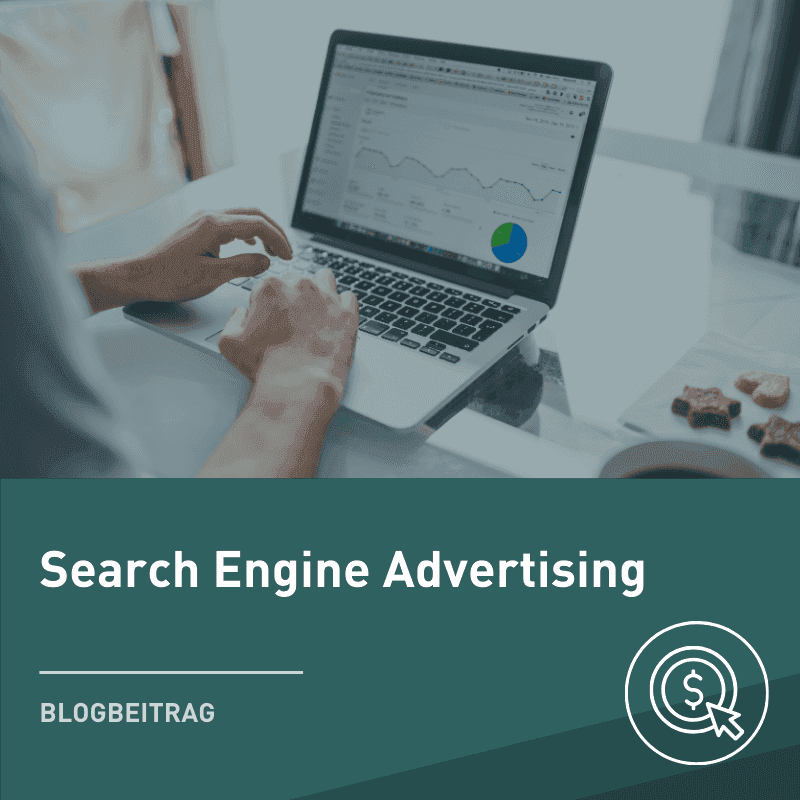
Blog Post
SEA

Karina
Nikolova
published on:
01.10.2021
Search Intent & Ads Automation - The Future of Google Ads
Table of Contents
Table of Contents
Google is continuously evolving. There are new privacy policies to consider, new technologies replacing old ones, and the user experience during searches is constantly being improved. For online marketers and advertisers, this means engaging with new features and guidelines and responding to them to achieve the best possible performance.
The topic of "Search Intent" is not new, but it continues to gain importance. Why it's critical for Google Ads, the role automation plays, and where Google Ads may head in the future are revealed by our SEA Warriors in this blog post.
The change in organic and paid search
Over the past decades, Google search results have changed significantly. The original list of 10 links is barely remembered, and ads have evolved in format and presentation. Nonetheless, Google's goal remains the same: to display the most relevant results. This is relative to the search query and increasingly pertinent to each individual searcher with their unique prerequisites and requirements.
With the help of machine learning, Google has been attempting for some time to better understand search queries and grasp contexts and meanings: what is the need/intent behind the request, and what type of result is relevant for this query? The context is becoming more important than the exact form of the word, both in SEO and for Google Ads.
Individual factors also influence the result: location, device used, personal search history, the search history of people with similar interests, etc. A new feature in the search results in the USA provides insight into the selection criteria for search results: why is a specific result relevant to a search query? In the USA, users can access additional information for each organic search result, detailing the result and the associated domain, as well as why the result is relevant, for instance, due to local relevance, language, and keywords present on the page. In Germany, this feature has not yet been rolled out, but it is likely only a matter of time.
The way people search has also changed: thanks to assistants like Google Assistant, Alexa, or Siri, longer "conversational" search queries are increasingly being made, in the form of complete sentences or questions. For search engines, this raises the question: how can even more complex inquiries be answered satisfactorily? The goal is to understand search queries as a human would and thus identify the intent behind them.
Semantic Search - Search Intent in Google Ads
In search engine optimization, search intent has long been an essential topic. Strict optimization for exact keywords is long gone; semantic search recognizes contexts, synonyms, and similar terms. Google's goal: to recognize the intent behind every search. What is the intention of the searcher? To be informed, entertained, compare, buy, or solve a specific problem?
The development does not surprise our experts: Google Ads is following this development, and search intent is playing a more significant role in paid search as well. Google is striving to align paid and unpaid results?
As a result, the precise, very finely-granulated booking of keywords and the detailed structure of campaigns and ad groups will no longer exist in the future. Instead, Google is focusing on automation and using machine learning to understand how users operate, which ads, for instance, perform well, and which do not—regardless of manual optimization.
What does this mean for Google Ads?
Automation in Google Ads has been observable for several years now. It’s moving more towards smart bidding strategies, away from manual optimizations. An example of this is the Responsive Search Ads (RSA), which were introduced in 2018. Google autonomously assembles ad headlines and descriptions, determining and displaying the optimal combination based on machine learning.
The same applies to ad extensions, which are played out automatically: from a variety of different media (images and videos), Google displays different variations. The algorithm learns from this, which compilation performs best and uses this knowledge to automatically optimize ads and extensions. Through these additional details, semantic search queries, for instance, can be answered in the future.
The adjustment of keyword match types also indicates the direction in which things are headed: the "Broad Match Modifier (BMM)" has been combined with "Phrase Match," and "Exact Match" is no longer as exact as it was in the past but now also includes keyword variations that Google has identified as relevant.
The future of Google Ads Managers
What does the future hold for Google Ads? The trend indicates it: manual optimization options are increasingly disappearing. Eventually, there will probably only be smart campaigns into which a keyword list, ad text, and creatives are fed, the ROAS is set, and Google takes care of everything else.
Given the increasing automation, we might ask: will Google Ads managers become obsolete in the future? Certainly not, though the focus of the work is gradually shifting from manual, craft-based work towards much more strategic consulting. The fewer minor adjustments that can be made, the more critical the few optimization options remain for advertisers in Google Ads, such as the creation and optimization of ad texts, monitoring, adjusting the ROAS, or optimizing landing pages.
Experienced SEA experts also keep an eye on the overlaps with other channels as well as the company's overall strategy. How can more qualified traffic be generated overall? Which other channels besides Google Ads are sensible and promising for the industry and the company? What does the customer journey look like? This could mean, for instance, developing funnel concepts or even just defining the target group precisely.
Thus, SEA managers will continue to exist, but the demands on this already complex job are likely to rise rather than fall. More than ever, it’s about looking "beyond the horizon," beyond one's channel, and taking the high-level view of the company's strategy, including various measures and channels that lead to the goal.
Tips for lasting success with Google Advertising in times of automation
The future might bring only Smart Campaigns, but manual adjustments are still possible. And even with automated campaigns, there are several levers to influence success. Here are the key tips from our SEA experts.
Even though the future is leaning more towards automation, manual campaigns are still possible. The SEA Warriors team relies on manual optimization for new campaigns to understand the background and not to leave everything 100% to the "black box" Google: what works in campaigns and what doesn’t? And even with increasing automation, testing remains important. Which creatives work best? Which landing pages have the best conversion rates (keyword A/B Testing)?
In choosing keywords: don't add too few, but rather broaden the terms a bit to avoid missing out on potential. Overly restricting leads to reduced reach and higher click costs. Depending on the goal, it may be especially useful in new accounts to maximize clicks and bring as many users as possible to the website or online shop. On the one hand, a certain minimum amount of data is necessary to derive conclusions. On the other hand, Google learns how users function only through sufficient data.
Empathy is crucial for all online marketing channels: understanding the needs and intentions of the target audience, putting oneself in their shoes. This also includes asking: where is he or she in the funnel? What is the current search intent, and what is the next step? Is it just about gathering information, comparing providers or products, or is there already a specific purchase intention for a specific product or service?
Depending on the position in the customer journey and intention, the approach and offer to the target audience differ. Accordingly, landing pages, ad texts, and creatives must be selected and precisely aligned with this intention.
And fundamentally: A holistic online marketing strategy, which considers all relevant channels, a consistent user address, correct tracking, and diligent monitoring are prerequisites that remain important regardless of automation or new developments in Google Ads.
Sustainably successful Google campaigns and ads with the internetwarriors
Would you like to optimize your Google Ads campaigns and make the most out of your budget? The internetwarriors SEA experts bring years of experience with small and large accounts, small and large budgets. We stay constantly updated with changes and new features and developments. As a Google Premium Agency, we work directly with Google and are often invited to new beta tests. This allows us to try out changes earlier and gather experiences before these innovations are rolled out for all accounts.
As a full-service agency, we also bring expertise in other channels, such as SEO and web analytics. This creates synergies between the individual channels and allows us to maintain an overview of the entire online marketing strategy and your overall performance. We will guide you and your Google Ads account strategically into the future. Contact us, we’d be happy to create a non-binding offer for you!
Did you enjoy the blog? Recommend it now!
AUTHOR

Karina
Nikolova
Karina Nikolova is considered one of the veterans at internetwarriors. She cares deeply about SEA management, but she also enjoys developing marketing strategies for social media channels like Facebook, Instagram, LinkedIn, and Pinterest. Her latest passion is in TikTok advertising. In addition to daily performance analyses and optimizations, she appreciates the successful communication with clients in her work.


